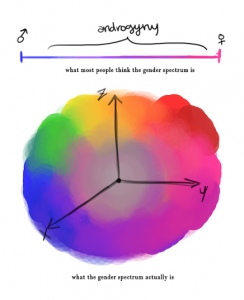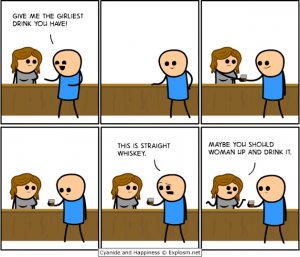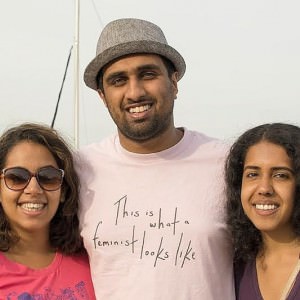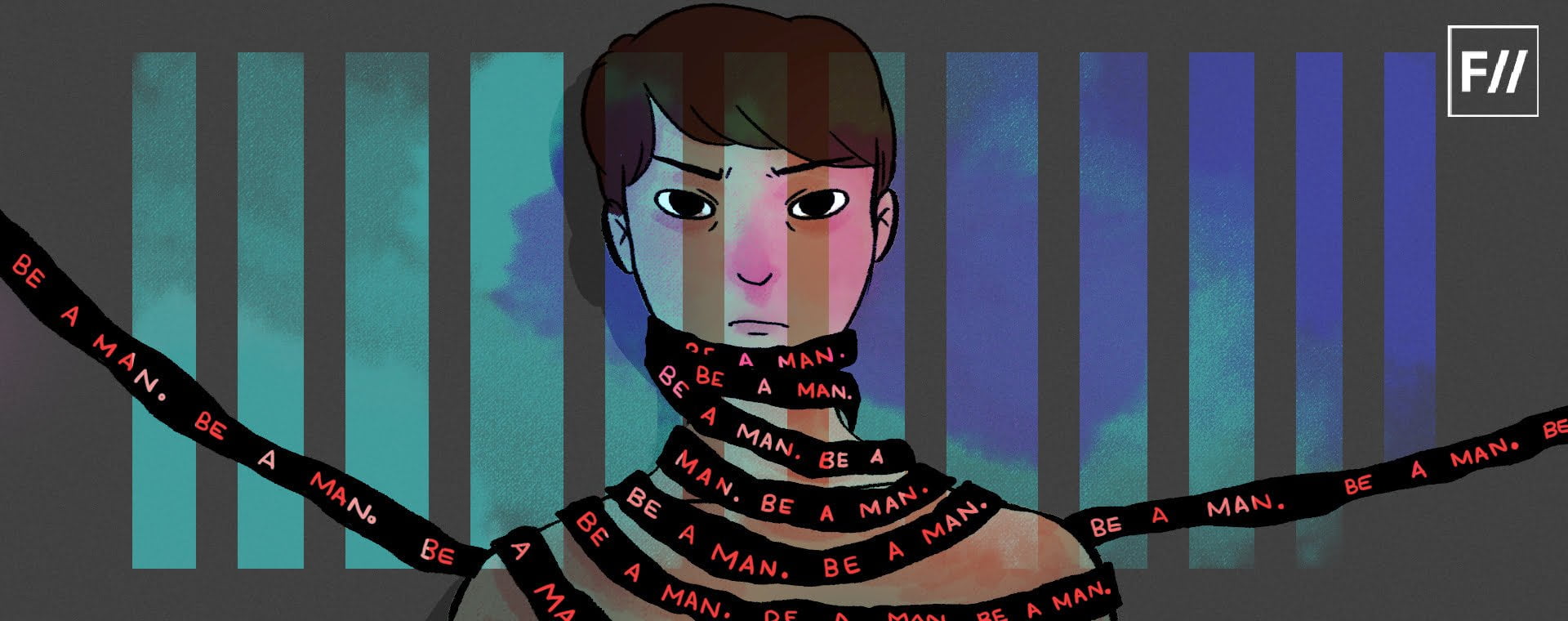
The Gender Spectrum
I preface this post by pointing out that I identify as a feminist. That when I make the claim that gender rights are for everyone, I do so with the full understanding that women have been historically disenfranchised, and continue to be. But anyone that has paid attention to the intersectional nature of feminism will tell you, that so also have other communities and peoples. In my truly gender neutral utopia, everyone on the spectrum of gender and sexuality has the same rights – and not because they are men or women or however else they would like to be identified; but because they’re individuals.
Patriarchy’s biggest problem is not so much that it typically undermines women, as much as that in defining this male superiority, it also sets definitions of masculinity and femininity, and of how men must be masculine and women, feminine. It interprets, and enforces upon our collective conscience, the idea that gender exists in binary – in black and white.
So needless to say, patriarchy and rape culture negatively affect the entire spectrum. I can’t speak of the trans- or queer-experience, but today, I want to speak about how patriarchy affects even those that it claims to put on top of the pyramid – straight, cis-men. Yes, you heard me right. The foremost purveyors of patriarchy – those that appear to benefit the most from it, are also brought down by it.
Patriarchy refuses emotional literacy to men

Credit: Cyanide and Happiness
In essence, because patriarchy defines what men should be – physically strong, emotionless, sex-hungry – it puts an inordinate amount of pressure on men to conform to this stereotype. I could retire already if I had a dollar for every time someone told me that I should “man up”, or that “real men don’t . . . .” or to not “cry like a girl”. Every time someone says or does something that enforces a stereotype that women are the weaker sex, they are also alluding to an equally wrong stereotype that men are stronger.
Over time, this seems to have led to a lack of emotional literacy or the lack of support to express their emotional literacy.
There is restriction in everything from career choices to choice of clothing

The author – pink outfit, shaved legs, and all.
Societal pressure on men to conform to patriarchy not only has many men fearing the concept of expressing emotion (a decidedly healthy thing to do), but also influences things as inconsequential as what we order at a bar (real men drink scotch), to decidedly more long-term things like what career options we choose (fashion consultant? That’s a girls’ job!).
This need to be ‘manly’ often directly affects the social acceptability of men doing things that are traditionally considered ‘feminine’. I have personally been told off for wearing my favourite colour – pink. I have been asked whether I’m trans- or gay, because I shave my legs. Yes, I do that. The fact that you just did a double-take because a conventionally ‘manly-man’ just ‘admitted’ to shaving his legs – is essentially the point of this article.
Men being raped is seldom talked about
Patriarchy also makes the implicit assertion that it is ‘right’ for men to sexually dominate women. And somehow, for men to expose vulnerability, to be weak, is a bad, bad thing. Because we’ve been schooled – by literature, media, and public discourse – to believe that women are the damsels in distress and men are the macho saviours.
I have seen discussions and arguments where many people argue that men can’t be rape victims, for example. Because, well, essentially, men always want sex and their consent is implicit in their existence. In fact it is also a fact that a lot of rape among men is also perpetrated by men themselves.
However, men being raped is often mocked – it is not event considered rape. For instance, a friend recounted a story where while she was watching the movie B.A. Pass in a theater, several people laughed when the lead protagonist (a man) was picked up by a group of men and raped.
These nuances of patriarchy are so ingrained into our belief systems that we don’t even realize that every time we replace a stereotype with another one, we’re taking one step back rather than forward.
So, to reiterate, gender equality is for everyone. And the patriarchal mindset is a common enemy. Yes, it affects women more directly, but that shouldn’t negate the fact that it hits all of us, in different ways. Patriarchy tries to define for us, who a man is or who a woman is. But in reality, the only thing that makes you male or female or transgender or agender is that you identify as such. The right to gender identity is fundamental to equality. Seize it.



